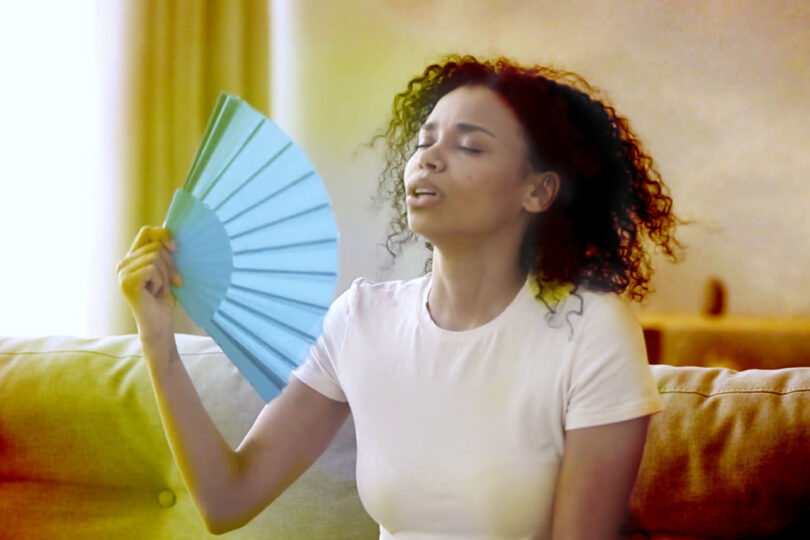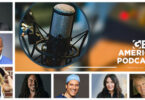It seems that everyone is experiencing a heat wave this summer. Temperatures are skyrocketing, making it hard to stay cool even with air-conditioning. Here are some things that can help you feel cooler during summer.
Dress Lightly – It’s not just the amount of clothes that matter, but the type as well. Lightweight, loose-fitting, absorbent, or wicking materials like cotton or technical fabrics work best. Keep it to one layer. And look for lighter colors because darker ones can absorb the heat and make you feel hotter.
Take a Cool Shower – A bath or simply sponging off with cold water will work, too. It should help cool your body. And warm water also works because you cool down as the water evaporates from your skin and hair. But try not to steam up the bathroom too much. That could make things worse.
Put your hands or feet in cold water. Use an icepack or a frozen “hot water bottle” and put it on “pulse points” like your wrists, ankles, the crooks of your elbows, and the backs of your knees. Just be sure to cover your skin with a towel to protect it, and only do it for 20 minutes at a time. Or wet a towel with cold water.
Wear Sunscreen – A sunburn can dehydrate you and make it harder for your body to cool itself. Wear a wide-brimmed hat and sunglasses when outside, especially in direct sun. And cover any exposed skin with sunscreen. Put on SPF 30 or higher about 30 minutes before you go out. If you stay outdoors, you’ll need to reapply it throughout the day.
Keep the very young and the elderly cool. Babies, very young children, and the elderly don’t handle the heat as well as everyone else. Check on elderly neighbors and friends.
Keep pets cool. Make sure they have plenty of clean water and shade. Or bring them in the AC with you if possible. For more info, click here.
Avoid exercise during the heat of the day. If you can change your workout to the cooler morning hours
Don’t leave pets or children in vehicles. Hot cars can be deadly. Never leave children or pets in your vehicle. The inside temperature of the car can quickly reach 120 degrees.
Know the signs of heat-related conditions
- Heat Exhaustion Excessive heat can lead to sunburn, heat cramps, heat exhaustion, and heat stroke. If someone is experiencing heat cramps in the legs or abdomen, get them to a cooler place, have them rest, lightly stretch the affected muscle, and replenish their fluids with half a glass (about 4 ounces) of cool water every 15 minutes. If someone exhibits signs of heat exhaustion (cool, moist, pale, or flushed skin, heavy sweating, headache, nausea, dizziness, weakness, exhaustion). Follow these steps.
- Move them to a cooler place.
- Remove or loosen tight clothing.
- Spray the person with water or apply cool, wet cloths or towels to the skin.
- Fan the person.
- If they are conscious, give small amounts of cool water to drink.
- Make sure the person drinks slowly.
- Watch for changes in condition.
- If the person refuses water, vomits, or begins to lose consciousness, call 9-1-1.
- Heat Stroke is life-threatening. Signs include hot, red skin, which may be dry or moist; changes in consciousness; vomiting; and high body temperature. Call 9-1-1 immediately if someone shows signs of heat stroke. Move the person to a cooler place. Quickly cool the person’s body by immersing them up to their neck in cold water if possible. Otherwise, douse or spray the person with cold water, or cover the person with cold, wet towels or bags of ice.
Hydration
- Drink before you feel thirsty. Drink plenty of water throughout the day. Unless you’re exercising, sports drinks won’t re-hydrate you quicker than water — but milk might.
- Watch the Caffeine That’s the “stimulant” in your morning cup of coffee that fires you up and gets you out the door. It’s pretty safe for most people but can raise your body temperature. That might not be good if you already feel hot. And it’s not just in coffee. It’s also in chocolate, tea, sodas, sports drinks, and many nonprescription drugs. Read the packaging to know for sure.
- Skip the Booze An ice-cold beer or cocktail might seem like just the thing if you’re baking in the heat. But the alcohol can make you feel even warmer while actually cooling your core temperature. This is not a good combination and may make you nauseous and dizzy if you’re already hot. And if you drink too much, you might upset your body’s hormones, which sometimes spikes body temperature for short periods known as “hot flashes.”
- Careful with the icy drinks – Sip, don’t guzzle. Drinking slushes and smoothies too fast can leave you with an upset stomach. Remember the dreaded “brain freeze” from childhood?
Keep your home cooler. Even if you have air-conditioning, these tips will help you feel cooler without a huge power bill. For more information, click here.
- Close windows and blinds during the day. To keep your house cooler, close windows, and blinds to keep cool air in as soon as the temperature rises during the day.
- If you can apply window tinting to block and reflect more of the sun.
- Let cool air into your home so it’s not stuffy indoors. Take advantage of cooler nighttime temperatures by opening the windows as soon as the temperature starts to drop. Open as many windows as you can so you get good circulation. If you don’t want to sleep with your windows open, shut them before you go to bed and open them up in the morning before it starts heating up.
- Sleeping on the floor will be cooler. Since warm air rises, consider putting your mattress on the ground where it’s slightly cooler. If you have a basement, you could also sleep down there in a sleeping bag on nights when it’s particularly hot. Let it blow across a bowl or pan of ice cubes for an old-school version of air conditioning.
- Frozen Water Bottle in your bed Do you take a “hot water bottle” to bed to warm up in the winter? Well, you can also use it to cool down. Just fill it with water and put it in the freezer. You may need to wrap it in a towel to protect your skin before you use it. You also could toss any buckwheat packs/pillows that you usually use to heat up in colder months into the refrigerator or freezer.
- If you have a way to hang a hammock in your home, give it a try! You’ll get better air circulation, so it might be easier to fall asleep.
- Choose the Right Bedding. Start with suitable material for your sheets: Cotton or linen is best to let enough air in, keep you cool, and wick away sweat. Polyester/cotton blends won’t keep you as cool and dry. After that, look for a “thread count” of 200 to 400. More than that means the fabric won’t breathe well and might trap more heat and moisture.
- Don’t forget to turn off things that generate heat like lights, the oven or stove, and electronic devices that draw energy.
- Leave your hot car outside. If your garage is under the living areas of your home, leave your hot car outside to cool off before you park it in the garage.
Eating lighter meals like salads is another common-sense bit of advice. Because lower calorie-dense foods require less energy to digest and produce less heat inside the body. Consider food like watermelon, berries, broths and soups, tomatoes, and bell peppers are just a few hydrating foods you can eat. Hot weather can cut your appetite, so be sure to eat enough.
- Cool Treats to cool down For a fun snack, rinse fresh grapes and stick them in the freezer. Then, pop a frozen grape in your mouth whenever you need a quick, cold treat. You can also enjoy frozen bananas or berries, which may stain your fingers.
- Make your own popsicles, and freeze your favorite fruit juice or smoothie in small paper cups or silicone cupcake cups with popsicle sticks for handles.
- Check your community for cooling centers that open up during a heatwave. You may be able to go to an air-conditioned library, school, or community center to cool off.



